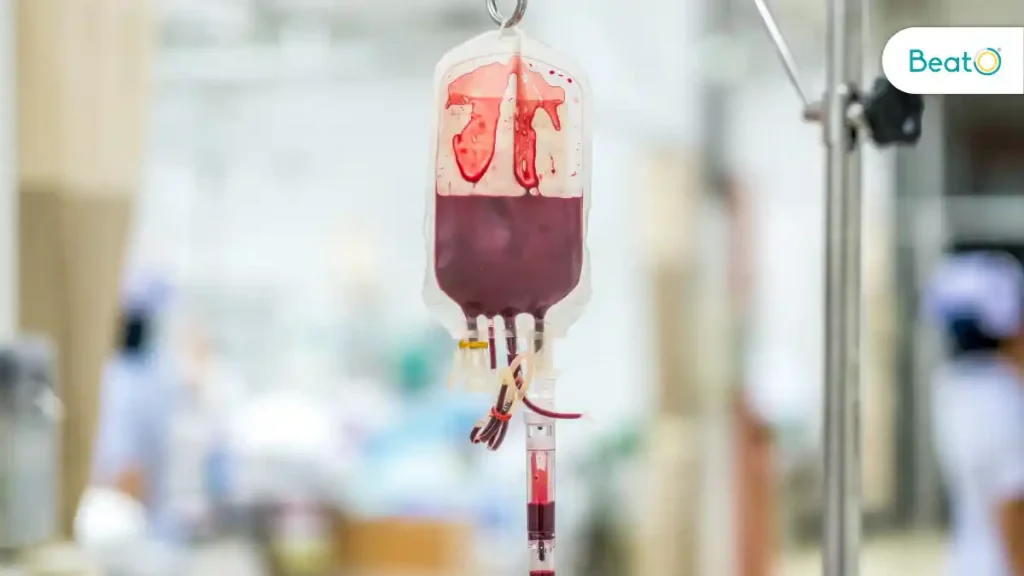In the realm of blood types, the Bombay blood type or hh blood group is one of the most rare blood phenotypes. Normally, people are aware of the ABO blood group system. However, most of us are unaware of another rare type of blood group, which is the Bombay blood group. Moreover, people are eager to discover answers to questions such as: What is the Bombay blood group, and what’s so rare about this exceptional blood type? To comprehend this, first, we’ll explain what this blood group type contains, its history, and its impact on individuals with this rare type of blood group.

The blood contains various elements, including Red blood cells, white blood cells, plasma, and platelets. But did you know that red blood cells contain a set of markers on their surface that interact with the plasma? Yes, of course, this interaction makes each blood type unique. Moreover, in the case of Bombay, the blood type does not express the H antigen, which is also present in the O blood group. Therefore, they are unable to make A or B-antigen on their red blood cell. This is why people with this rare blood group cannot receive blood from ABO blood groups.
Some people think that AB -ve is the rarest blood group. Well, it is amongst the well-known blood groups. But there are rarer blood groups, such as the Bombay blood group. In this blog, let’s examine some unknown facts, history, and more about the Bombay Blood group.
Also read: Effective Ways to Reduce Sodium Intake and Improve Your Health
What is the Bombay Blood Group?

Bombay blood group is the rarest type of blood group that lacks H antigen on the red cell membrane and has anti-H in the serum. In addition, It fails to express any A, B or H antigen in their red cells or other tissues. In simpler terms, it is quite an odd type of blood group. In contrast, the Bombay doctors found that the hh type (Bombay type people) can accept only from another hh type and also can receive only from the hh type. This makes the Bombay Blood types a very special and rare category of people.
Also read: Unlocking Kidney Wellness: 7 Key Tips for Dialysis Patients
Bombay Blood Group History
One rare blood group was discovered in Bombay, India, for the first time, hence named as Bombay blood group. The serum from the individual reacted unusually with the other blood types in a way that had not been seen before. Plus, these individuals lack all of the ABO blood group antigens. This new and unique blood type has an H-antigen, which is also a building block for the antigens of the ABO blood group.
The “Bombay group” refers to people whose red blood cells do not have the H antigen. It was named after the location where it was initially identified. Their RBCs are similarly devoid of the A and B antigens because these antigens cannot develop without the H antigen precursor. Because of this, these people create anti-H, anti-A, and anti-B. As a result, they can only receive blood from another person who possesses the Bombay phenotype or RBCs that do not have the H, A, or B antigens. Due to the uncommon nature of this blood type, blood donations from a qualified relative are usually required.
It was first reported by Dr Y.M. Bhende in Bombay (Mumbai) in 1952. The discovery occurred when doctors found that a few individuals in Bombay were not reacting to the regular ABO blood typing system. Moreover, this rare blood group was found in India, Pakistan, Bangladesh and some Middle Eastern regions.
Also read: Measles Outbreak Alert: Key Symptoms, Prevention & Treatment
How Many have Bombay Blood Group?
According to reports, roughly 450 people in India carry this rare blood group. Bombay blood group was discovered by the Blood Group Reference Centre, now known as ICMR-National Institute of Immunohematology at KEM. However, this rare phenomenon was found in an individual who was admitted to the KEM hospital and required a blood transfusion. However, during the blood transfusion, the patient started a hemolytic transfusion reaction, and the blood transfusion was immediately stopped.
Further, studies have shown that this rare blood phenotype discovered in this patient was named as Bombay blood group, also called the HH group. The prevalence of the Bombay blood group is exceptionally low, estimated to occur in around 1 in 10,000 individuals in India and 1 in a million individuals in Europe. However, its occurrence may vary significantly in different populations globally. As per reports, this rare blood group is found in 4 per million of the world’s population.
Also read: Common Reactions to Trauma You Must Know About
Summing Up
To sum up, the Bombay blood group stands as a rare and fascinating phenomenon in the realm of human blood types. So, if you know someone with this rare blood group, register them in the Bombay blood group repository or at various blood banks. This can be the formal step towards creating a national database for individuals with this rare blood type. In addition, this can help someone with this unique blood type get help in case of emergencies.
Disclaimer: The content of this article is compiled information from generic and public sources. It is in no way a substitute, suggestion, or advice for a qualified medical opinion. Always consult a specialist or your own doctor for more information. Beato App does not claim responsibility for this information.
Are you looking for the perfect glucometer to check your blood sugar level? Try out BeatO smartglucometerkit, affordable and easy to use.
Discover top-tier diabetes care with BeatO’s Chief Clinical Officer,Dr. Navneet Agarwal. His expertise in Diabetes ensures personalised guidance for overall health. Try out a smartglucometerand keep track of blood sugar levels now.




